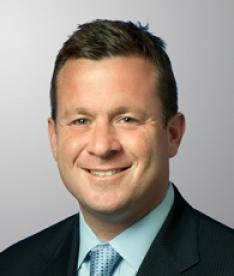A divided panel of the Ninth Circuit recently held that plaintiff Gregory Gabriel could not recover, as “appropriate equitable relief,” pension benefits he thought he was owed from the Alaska Electrical Pension Fund, after the Fund stopped paying him pension benefits that it had mistakenly advised him that he was entitled to. In so doing, the Ninth Circuit may be creating a circuit-split on the scope of monetary surcharge remedies, with the Ninth Circuit holding surcharge is limited to disgorgement of any profits a fiduciary made from his breach (unjust enrichment), or compensation for any loss the breach caused the trust estate. The Ninth Circuit rejected extending surcharge to include “make whole” monetary relief to compensate the participant for his claimed loss.
The Fund initially credited Gabriel with eleven years of credited service, which was enough to provide him with a vested benefit under the Fund’s ten year vesting schedule. Before he retired, a Fund representative advised Gabriel that he was entitled to a monthly pension, in excess of $1,200. After commencing payments to Gabriel, the Fund discovered that Gabriel owned the company for which he was working for a certain period and thus was not entitled to credited service for those years. Once those years were removed, Gabriel no longer satisfied the Fund’s vesting requirements.
After the Fund discontinued payments to him, Gabriel commenced a lawsuit seeking to recover the payments that he was originally advised he would be receiving. He advanced various arguments why he was entitled to benefits as “appropriate equitable relief.” Each argument was rejected by the Ninth Circuit. First, the Court rejected Gabriel’s claim that the Fund should be equitably estopped from relying on its corrected records that showed he never vested in his pension benefit. In so ruling, the Court determined that: (a) Gabriel had failed to show, as he was required to, that the Fund representative’s statement about his eligibility for a pension benefit was the result of ambiguous plan language, as opposed to a mistake in assessing his entitlement to benefits; and (b) even if the Plan’s terms were ambiguous, Gabriel could not show he was ignorant of the true facts, i.e., he admitted to having received a letter decades earlier informing him that he was not eligible for credited service while the owner of the company. Second, the Court rejected Gabriel’s request for reformation because the Plan contained no error and there was no evidence of fraud. Third, the Court rejected Gabriel’s request for surcharge because he could not establish that: (a) the defendants were unjustly enriched by the alleged fiduciary breaches, or (b) he was seeking a monetary award to recoup losses that the Fund suffered from alleged fiduciary breaches, since the money he was seeking was not due to him. The Dissent would have remanded the case for further consideration on the ground that the Supreme Court’s ruling in Amara v. Cigna did not limit equitable surcharge to instances of unjust enrichment or a losses to the plan.
The case is Gabriel v. Alaska Electrical Pension Fund, No. 12-35458, 2014 WL 2535469 (9th Cir. June 6, 2014).



 i
i

